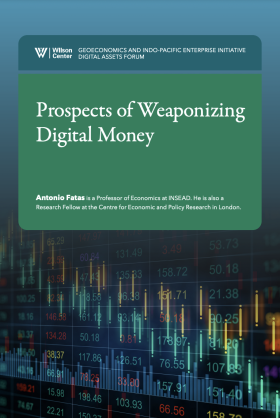Prospects of Weaponizing Digital Money


For decades, the US dollar has been the world’s preferred currency both for trade and financial transactions. To date, it has been the predominant global reserve currency and its importance goes well beyond the size of the US economy. Oftentimes, the influence of the US dollar in international markets has been regarded as an unfair benefit to the United States both from
an economic and geopolitical point of view.
Two developments have emerged over the past 20 years to challenge the greenback’s dominance, namely the Euro’s launch and China’s expansion. The launch of a common European currency uniting Europe in 1999 brought together a large economic area of countries with well-developed financial markets. Meanwhile, as China overtook Japan as the world’s second largest economy in 2010, imagining an increasing role for the Chinese renminbi was only to be expected.3 Nonetheless, the US dollar continued to dominate international trade and finance even as the global role of the US dollar weakened slightly in recent years.
Yet there is a new development underway that is increasing speculation about the possible decline in the dollar’s hegemony: the increasing role of digital forms of money combined with the possibility that central banks launch their own version of digital currencies, what is known as central bank digital currencies (CBDCs). Increased digitalization of money will no doubt impact the dollar’s dominance as the foremost global currency, while CBDC projects in both China and the Euro area can also challenge the greenback’s current dominance.
Author
Antonio Fatas is a Professor of Economics at INSEAD. He is also a Research Fellow at the Centre for Economic and Policy Research in London.

Indo-Pacific Program
The Indo-Pacific Program promotes policy debate and intellectual discussions on US interests in the Asia-Pacific as well as political, economic, security, and social issues relating to the world’s most populous and economically dynamic region. Read more

Explore More
Browse Insights & Analysis
360° View of How Southeast Asia Can Attract More FDI in Chips and AI


